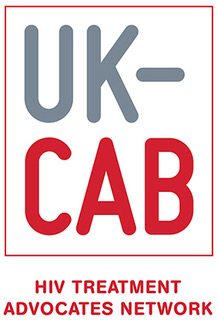3. HIV outpatient care and treatment
If you are in the UK, and diagnosed relatively soon after you acquired HIV, then the care that you are most likely to receive is described in Standard 3 (HIV outpatient care and treatment). This describes how your HIV care should be assessed and delivered. It focuses on physical health. Emotional wellbeing and mental health are discussed in Standard 6 (Psychological care). There are still some circumstances where more complex care is needed. These are described in Standard 4 (Complex HIV care).
3a. Access to, and retention in, care
You should be seen and assessed by a specialised HIV service within 2 weeks of testing HIV positive. At the same time, you should have access to psychological and peer support.
All options for HIV treatment, called antiretroviral treatment (ART), should be reviewed and discussed with you. Starting ART sooner rather than later has important benefits for your health. Modern ART drugs are safe and effective. They are easier to take than early HIV drugs and have fewer side effects. For most people, taking ART means you take only one or two tablets every day. ART does not cure HIV, but can control it for the rest of your life. But you will need to take tablets every day in the right way.
You and your doctor should make sure you’re ready to start ART. Your doctor will support you in starting ART as soon as possible.
Support at the clinic should include access or referral to emotional and psychosocial services. You should also be referred to your local HIV peer support group, if there is one, so that you can talk to someone else who lives with HIV. Peer support can sometimes help you to access other advice, such as on finance and housing, if you need it.
When you start ART, the amount of virus in your blood (called the ‘viral loadthis is the term used to describe the amount of HIV in your blood. The more HIV there is in your blood (and therefore the higher your viral load), the greater your risk of becoming ill because of HIV. All viral load tests have a cut-off point below which they cannot reliably detect HIV. If your viral load is below 50, it is usually said to be undetectable. Although there are more sensitive tests that can measure viral load to even lower levels, anything less than 50 is still called ‘undetectable’.’) should come down very quickly. It will soon reach such low levels that it is called undetectable. It will only stay undetectable as long as you are taking your ART properly. Having an undetectable viral loadthis is the term used to describe the amount of HIV in your blood. The more HIV there is in your blood (and therefore the higher your viral load), the greater your risk of becoming ill because of HIV. All viral load tests have a cut-off point below which they cannot reliably detect HIV. If your viral load is below 50, it is usually said to be undetectable. Although there are more sensitive tests that can measure viral load to even lower levels, anything less than 50 is still called ‘undetectable’. on ART means you cannot pass on HIV sexually. You cannot transmit HIV if your viral loadthis is the term used to describe the amount of HIV in your blood. The more HIV there is in your blood (and therefore the higher your viral load), the greater your risk of becoming ill because of HIV. All viral load tests have a cut-off point below which they cannot reliably detect HIV. If your viral load is below 50, it is usually said to be undetectable. Although there are more sensitive tests that can measure viral load to even lower levels, anything less than 50 is still called ‘undetectable’. is undetectable on ART, even if you don’t use condoms. So, Undetectable equals Untransmittable (U=U). U=U helps with prevention of HIV transmission.
ART will carry on working throughout your life. So you need to stay connected to care at the clinic. This is called retention in care.
HIV services need to keep in touch and see you regularly, to help you take ART and make sure it’s working well. Sometimes people miss appointments and don’t get seen regularly. The clinic should make sure you are contacted and brought back for treatment follow up. This helps you have a regular supply of drugs and regular blood tests.
If you transfer to another clinic, whether moving house or for another reason, your care summary should be sent to your new doctor and clinic, if you agree. You can ask to see your care summary.
If you are unhappy with your HIV doctor or clinic you should discuss this with them. If your concerns can’t be overcome, you can ask for a second opinion. You can also transfer to another clinic if you wish. There is also a formal NHS complaints procedure.
Key messages
If you are newly diagnosed, you should be offered an appointment with a specialist HIV service within two weeks and given access to psychological and peer support.
It is best to start ART as soon as you are ready. If you are struggling with any aspects of your ART at any time, there should be support for you from both the HIV clinic and peer support groups.
There should be systems in place, and support for you, to stay in care. If you need to change clinic for any reason, the transfer of your care should be done in a smooth and safe way.
